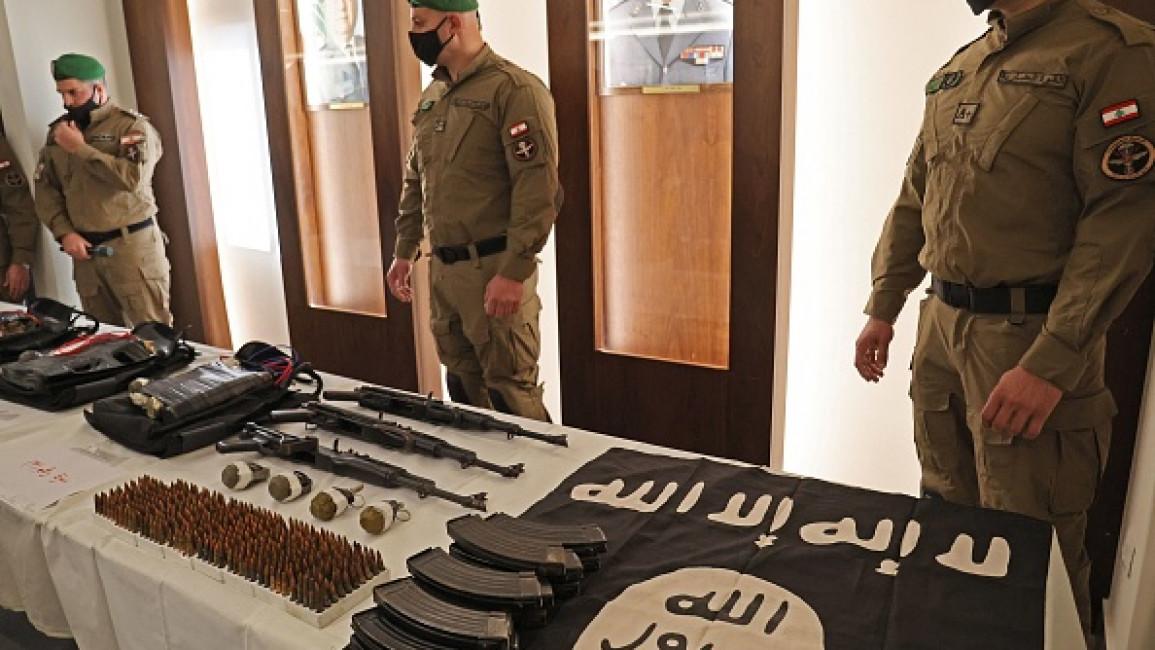
IS Ain al-Hilweh ’emir’ gets 160 years for plotting attacks in Lebanon
A prominent IS leader arrested seven years ago in Lebanon has been sentenced to a number of life terms for plotting a series of attacks.
A Lebanese military court has sentenced an Islamic State (IS) group leader to 160 years in prison for plotting attacks in the country that would have targeted politicians, power plants and other establishments.
Imad Yassin had reportedly planned to carry out dozens of operations, the daily Al-Akhbar newspaper reported, including the bombing of the Jiyeh and Zahrani power plants, a large market in south Lebanon’s Nabatiyeh, hotels in the coastal city of Jounieh, and the Al-Jadeed TV building in Beirut.
He was also planning to assassinate former MP and former head of the Progressive Socialist Party Walid Jumblatt.
Yassin was known as the ’emir’ (prince) of IS in the Ain al-Hilweh Palestinian refugee camp and a military commander of the extremist Jund al-Sham group. He was snatched by Lebanese army intelligence seven years ago from his hideout in the camp.
Ain al-Hilweh – the largest of Lebanon’s 12 Palestinian refugee camps – has witnessed deadly clashes between rival factions in recent months and militant groups have a significant presence there.
Known also by the pseudonym ‘Imad Akl’, Yassin was questioned for several hours on Monday evening and handed the long prison sentence in the early hours of Tuesday morning for the 11 different cases he is being prosecuted for.
The verdict includes three life sentences with hard labour for carrying out terrorist operations in the southern coastal city of Sidon in 2004 and belonging to the ranks of ‘Asbat al-Ansar’ and other armed gangs “with the intention of committing felonies against civilians and undermining state authority.”
His verdict also included four penalties with hard labour for a period of 15 years for “belonging to more than one armed terrorist organisation.”
The military court decided to acquit Yassin over another case of belonging to an armed gang as he had already been prosecuted by the Judicial Council, a separate judicial branch. This case involved plans to target Lebanese security forces.
The 54-year-old did not deny most of the allegations against him, after he publicly admitted belonging to militant groups, Al-Akhbar said.
Yassin reportedly gave mocking answers and seemed not to care about the court rulings, telling the court’s president: “Write whatever you want.”
Who is the Ain al-Hilweh IS ’emir’?
Yassin, also known as Imad Akl, joined the ranks of the Popular Front for the Liberation of Palestine (PFLP) early on his life but became radicalised in the eighties, and later joined what would become known as ‘Asbat al-Ansar,’ which has its base in the Ain al-Hilweh camp.
He would receive militant training on combat and preparing explosives and reportedly took part in a number of operations inside the camp, going after members in rival Palestinian groups and targeting businesses.
Yassin fell out with ‘Asbat al-Ansar’ and was later appointed as a military commander in ‘Jund al-Sham’ which was founded in Jordan in 1991.
He left Ain al-Hilweh in 2015 after a failed assassination attempt and got in touch with leaders in IS, at a time when the extremist group was carrying out lightning offensives in Iraq and Syria and capturing large swathes of territory.
Yassin was tasked with establishing an IS cell in Ain al-Hilweh with the aim of monitoring Lebanese military and security forces and planning to carry out ambushes and targeting infrastructure, including the coastal power plants and fuel depots in Jiyeh and Zahrani.
He had reportedly eyed the Casino du Liban and other restaurants and hotels in Jounieh, a popular market in Nabatiyeh, locations in downtown Beirut, as well as the killing of Junblatt.
But after reportedly monitoring Junblatt’s residence on Clemenceau Street in Beirut and his home in the mountain village of Mukhtara, Yassin stumbled upon too many “security obstacles.”
He faced the same situation when trying to target the Al-Jadeed broadcaster in Beirut, before being captured by the Lebanese army in Ain al-Hilweh camp.
Lebanon was targeted with a string of attacks – some claimed by IS – around a decade ago, especially areas largely controlled by the Iran-backed Hezbollah militant group.
The military and security forces sometimes announce foiling attacks and arresting suspects.
Source » newarab.com





